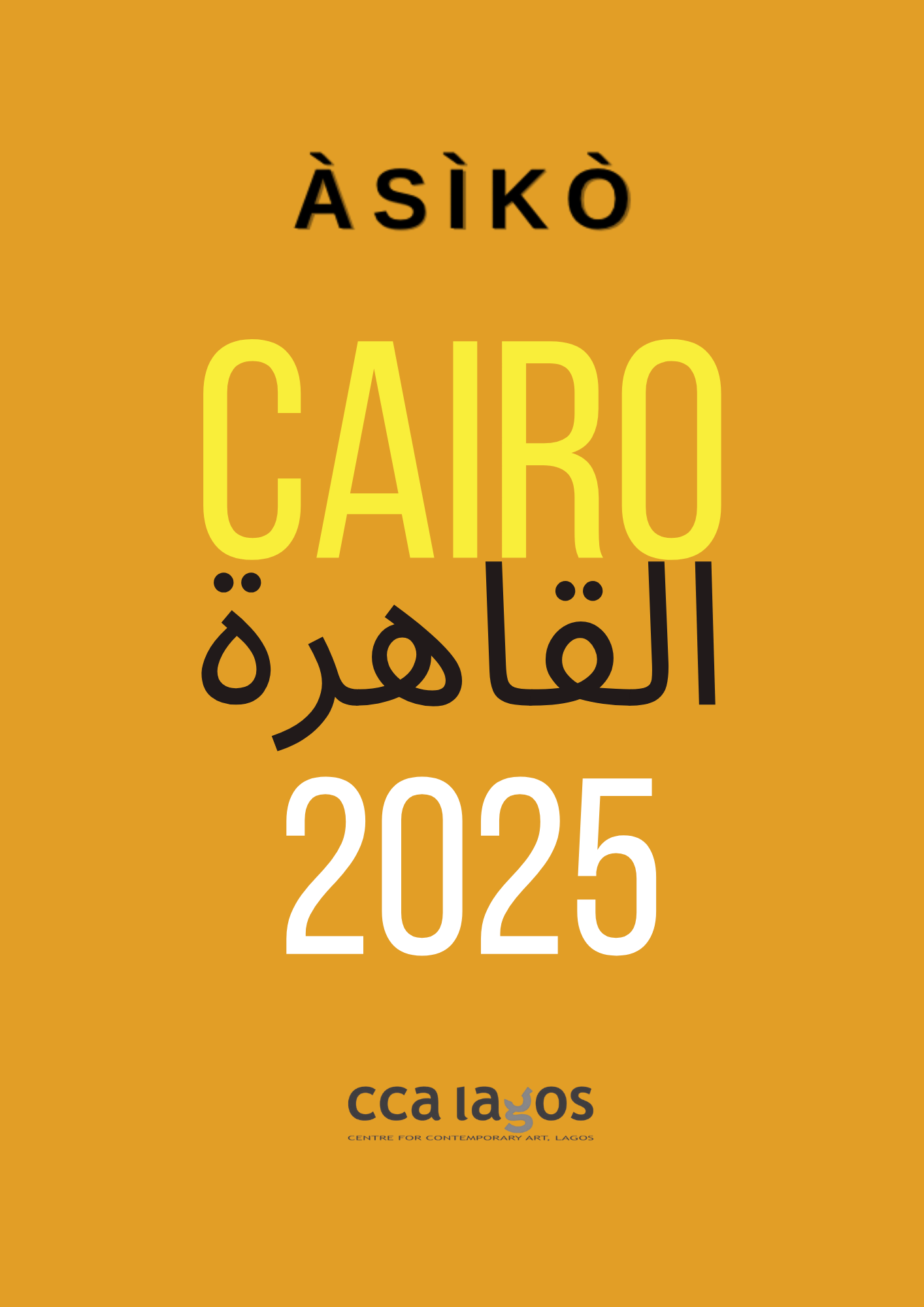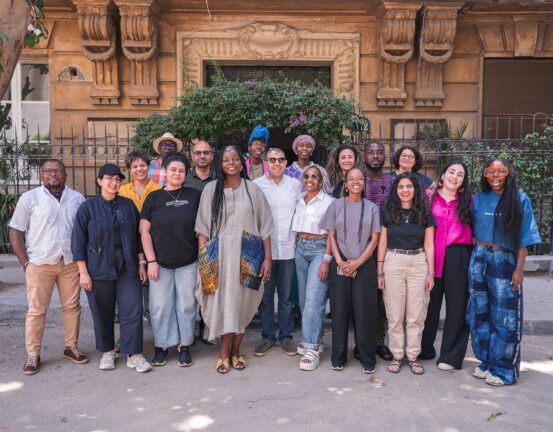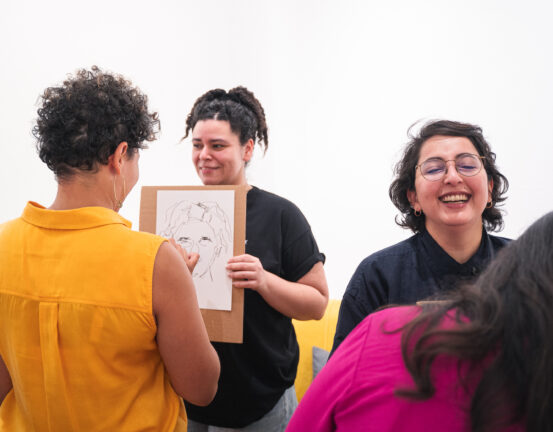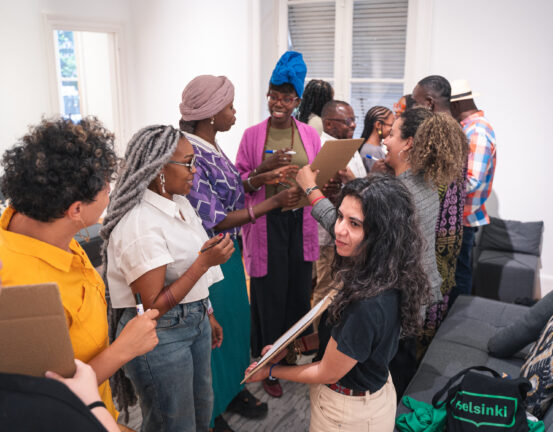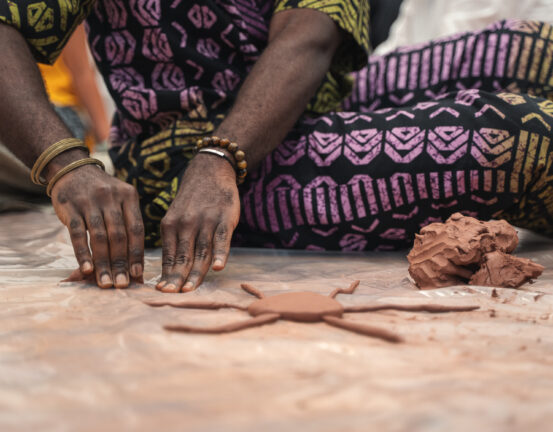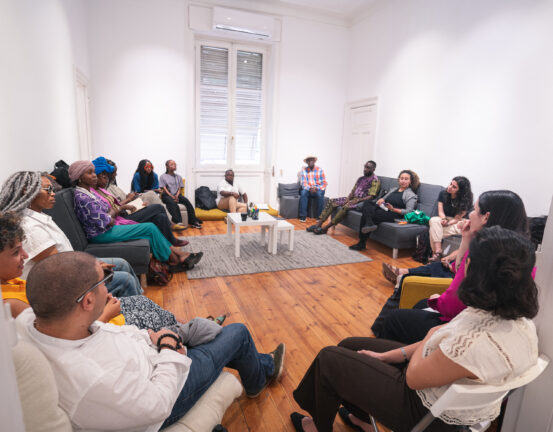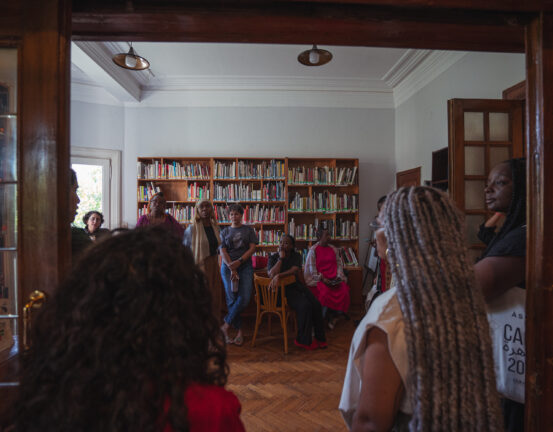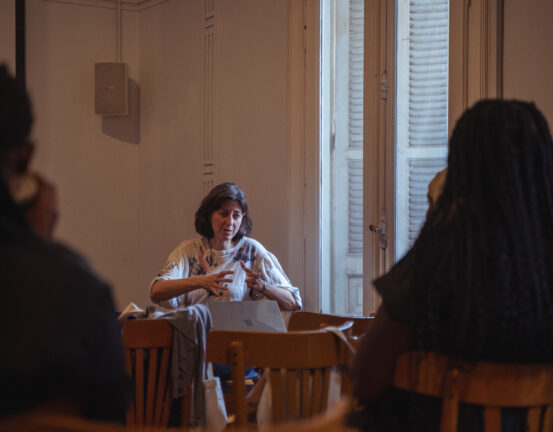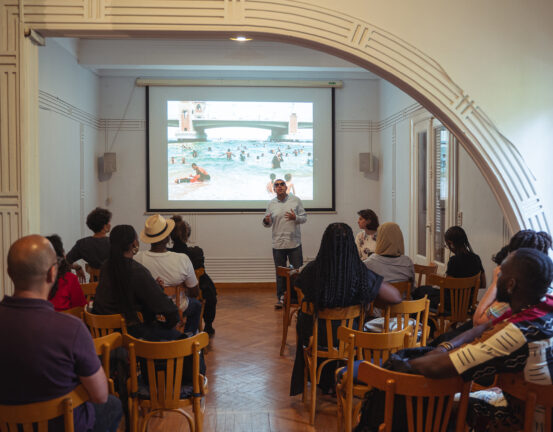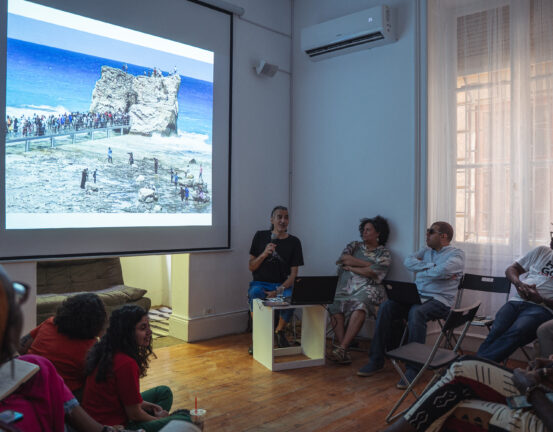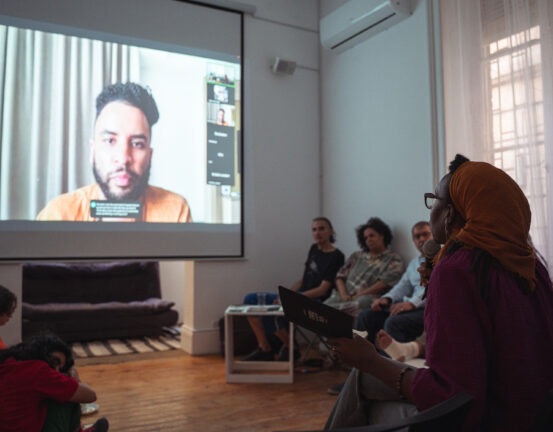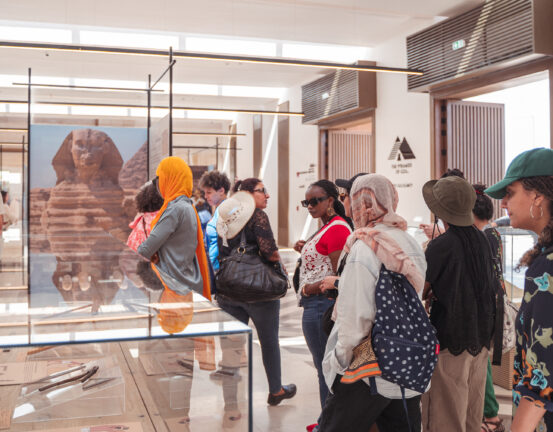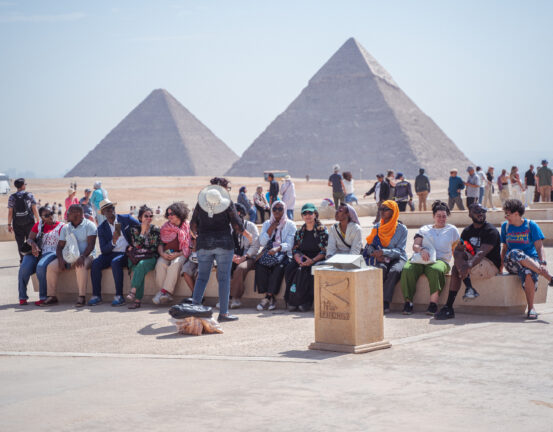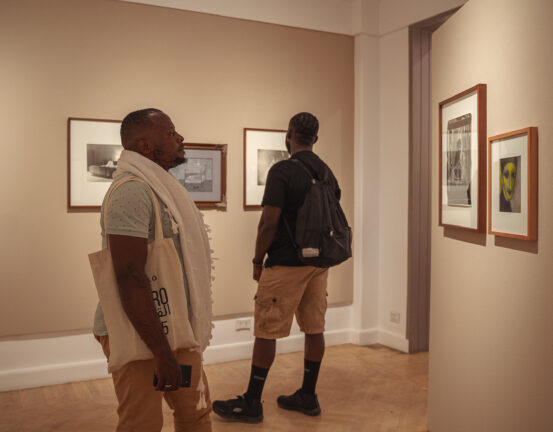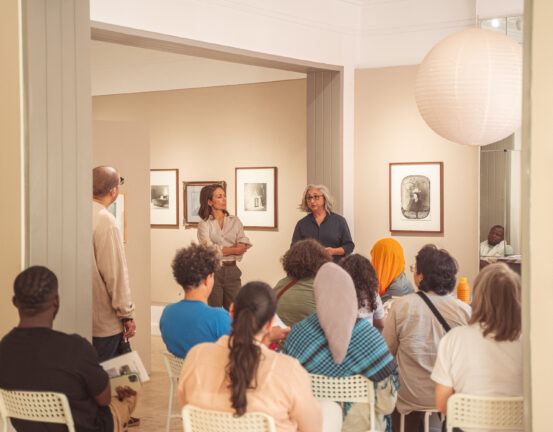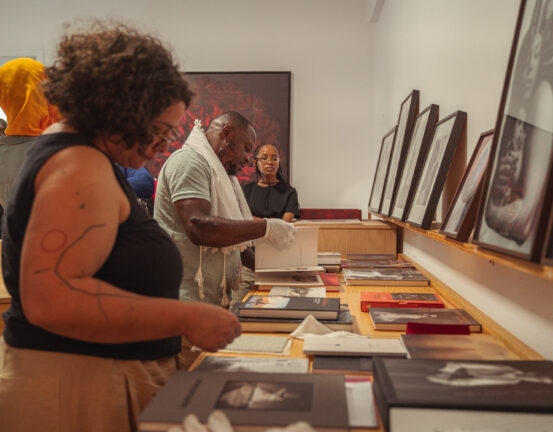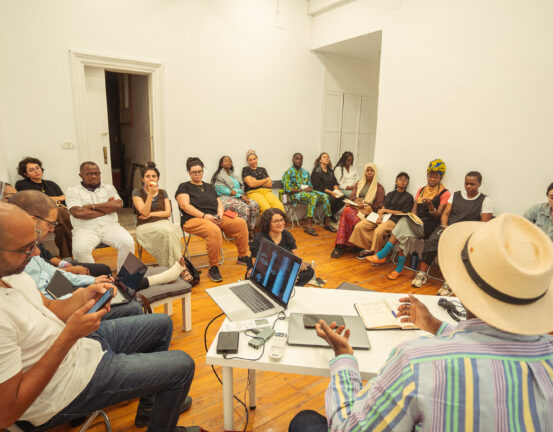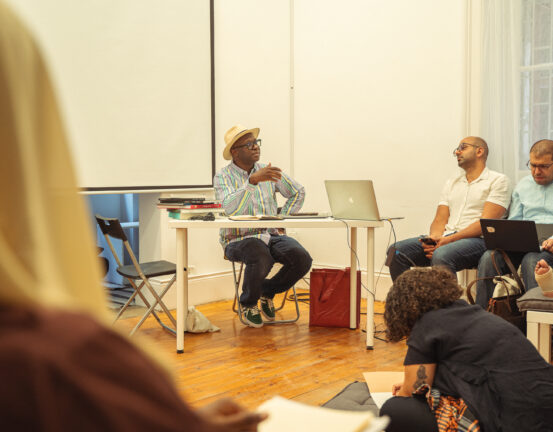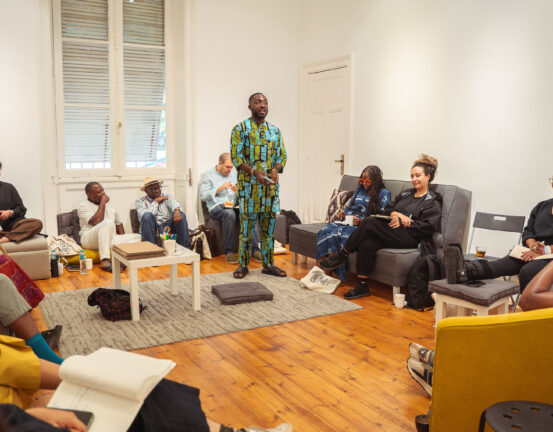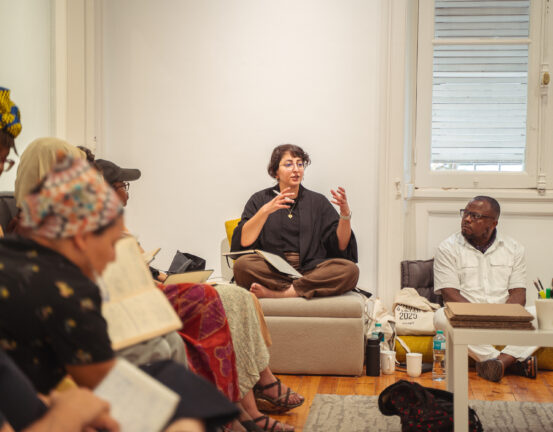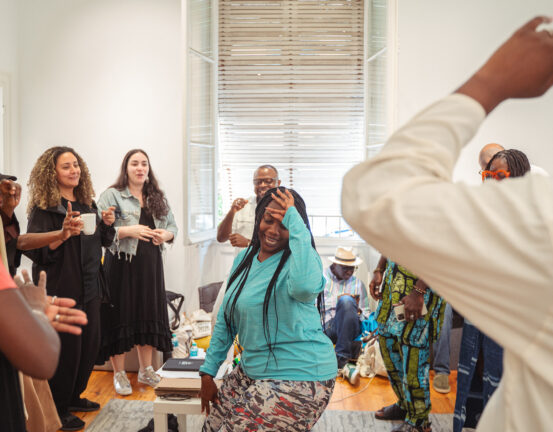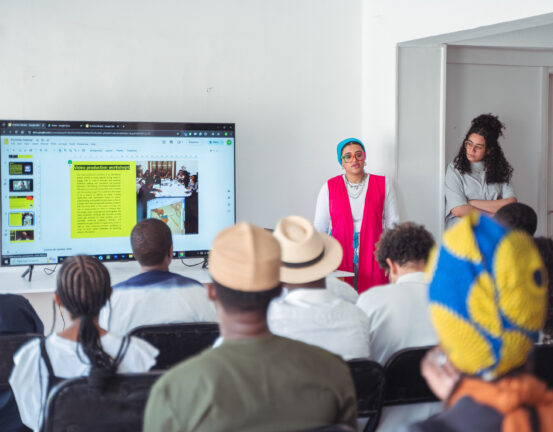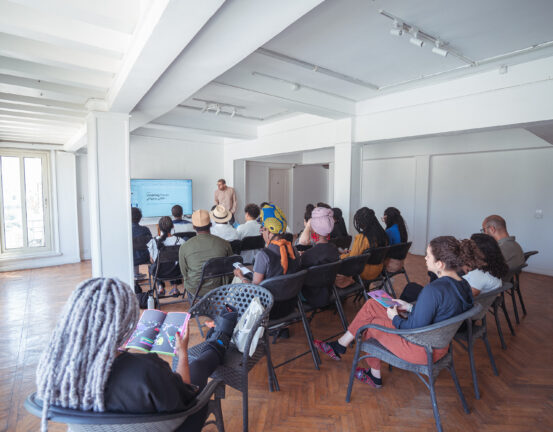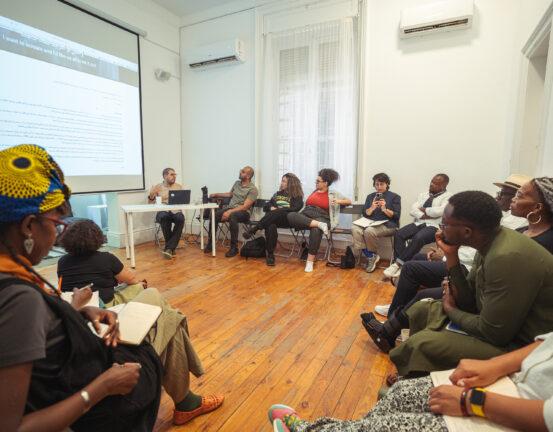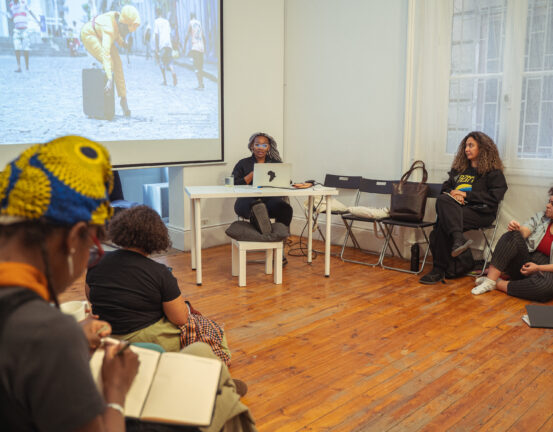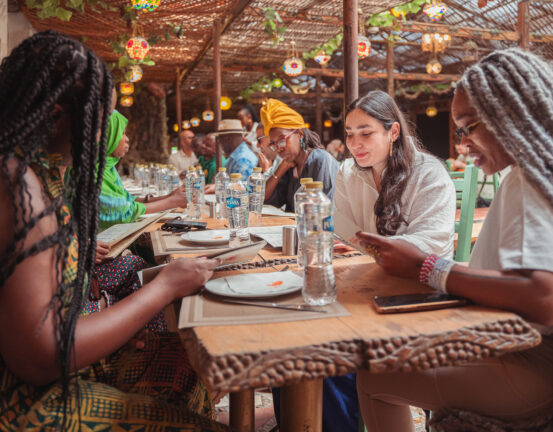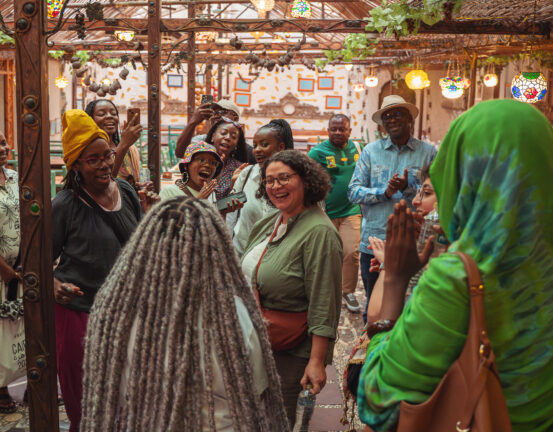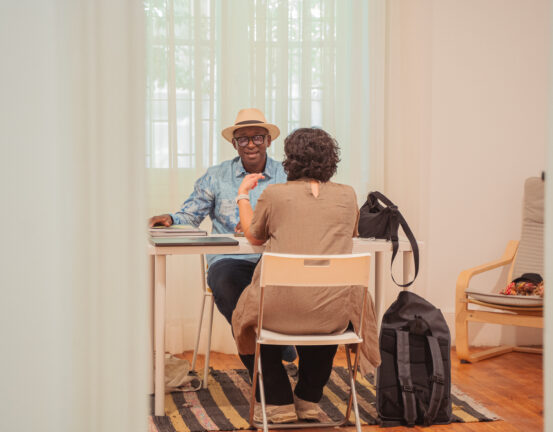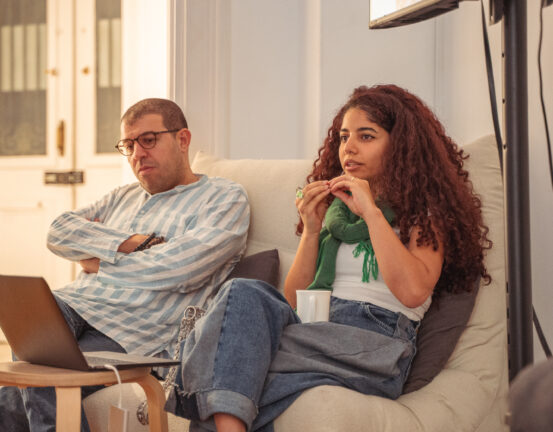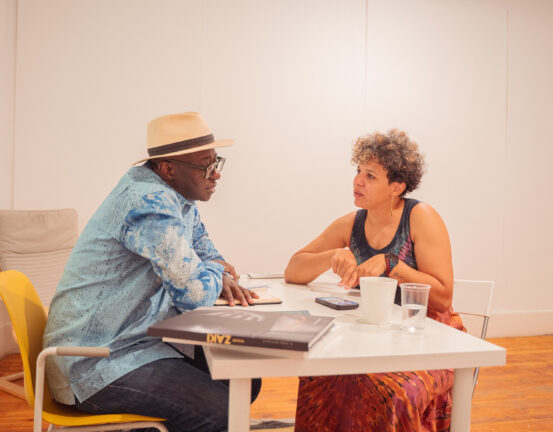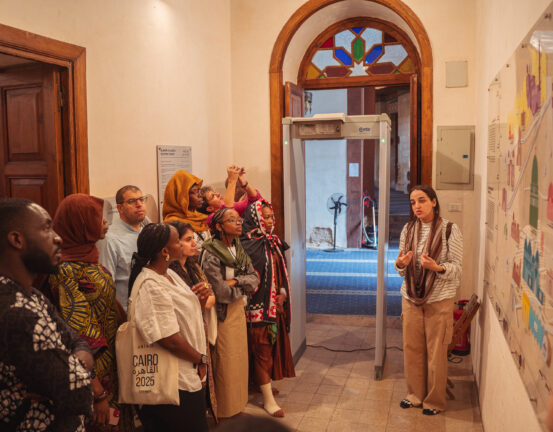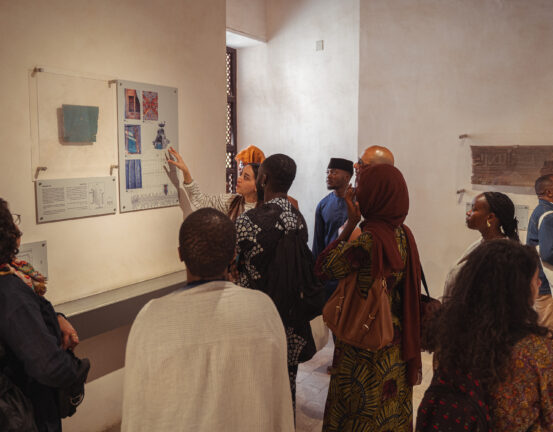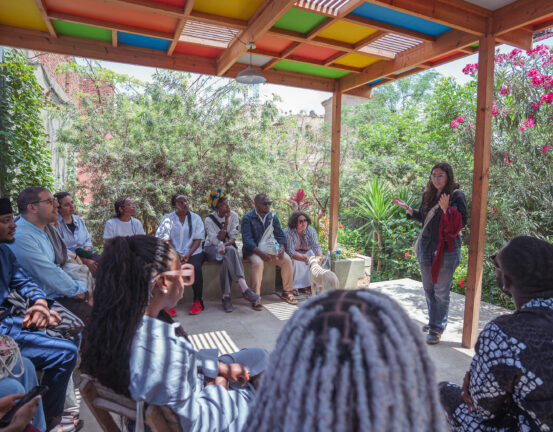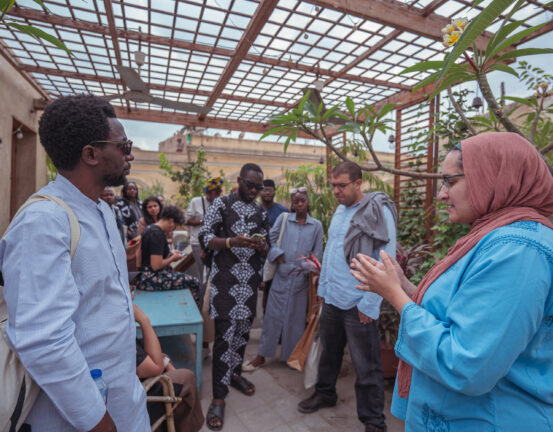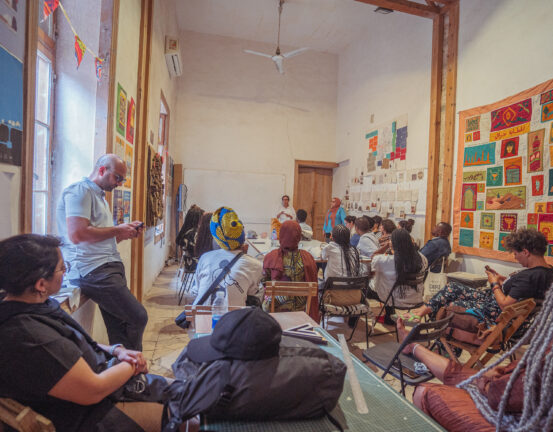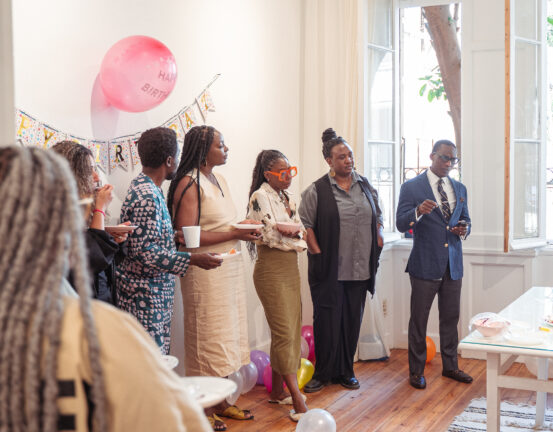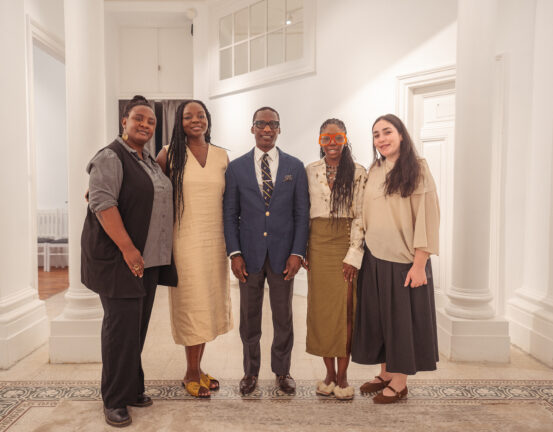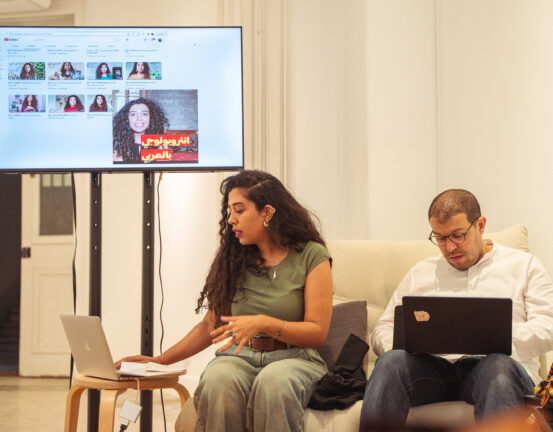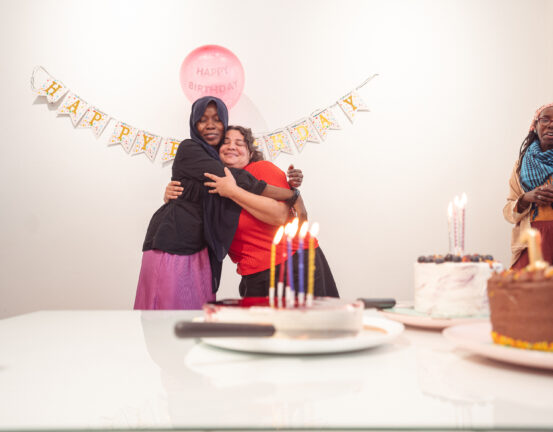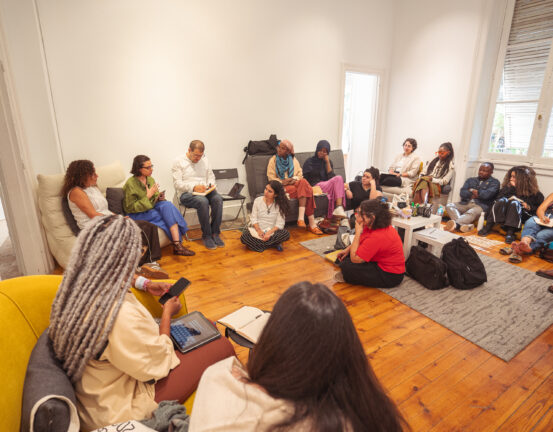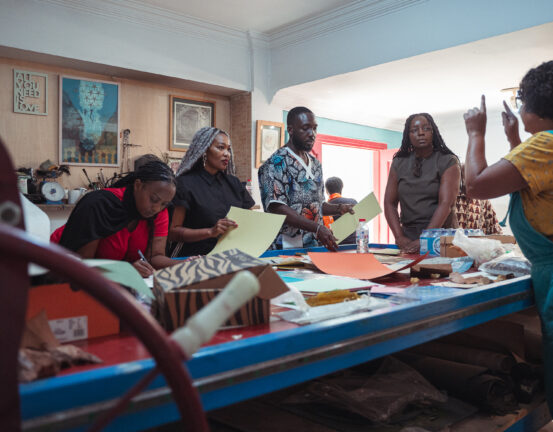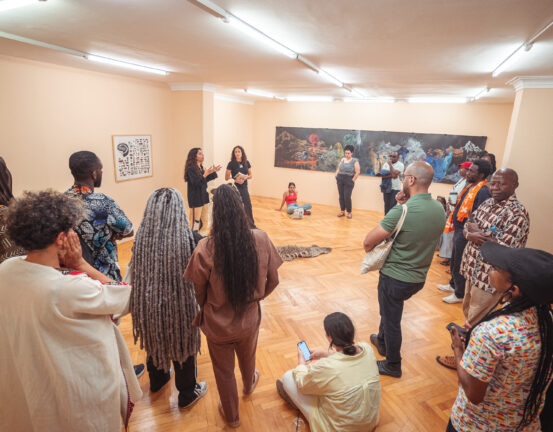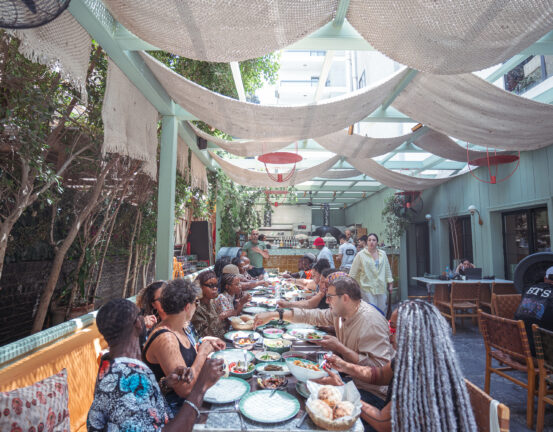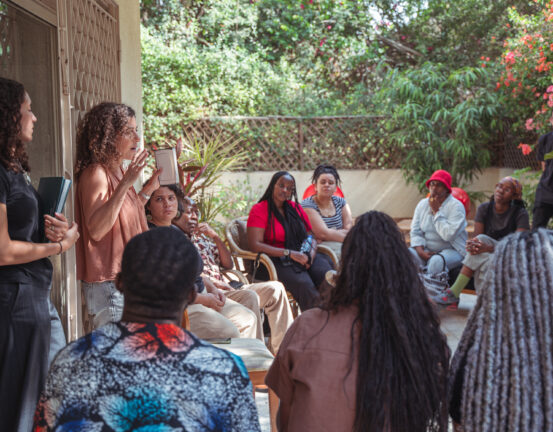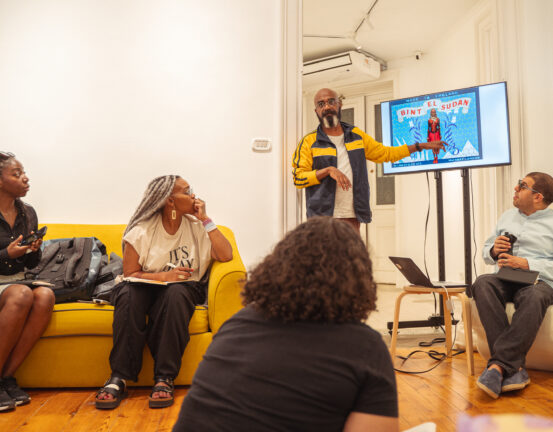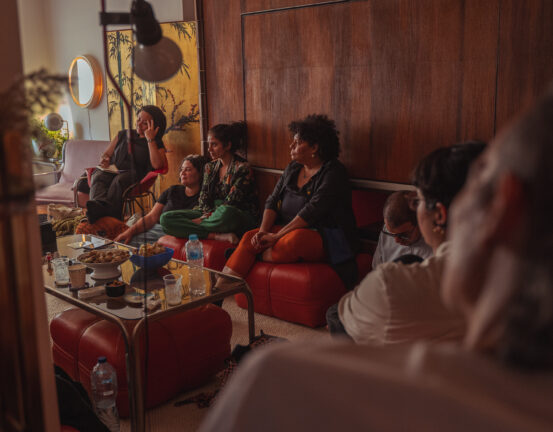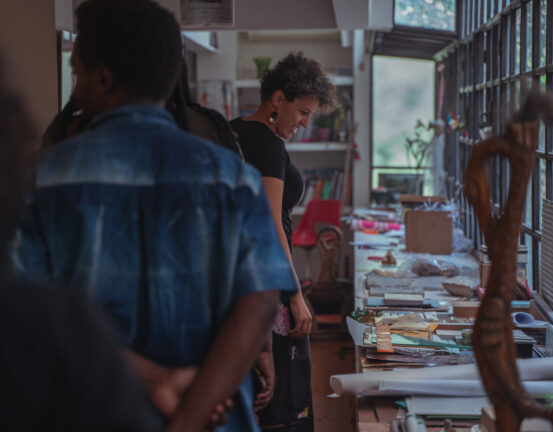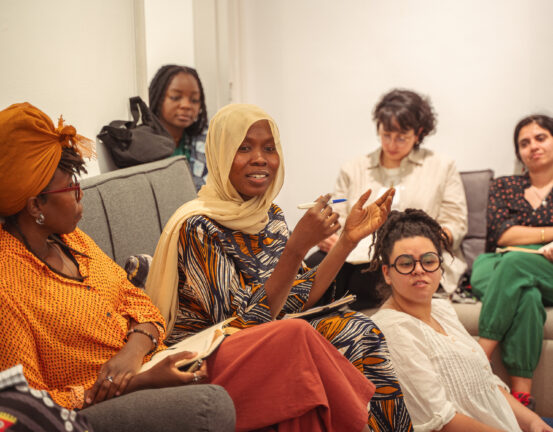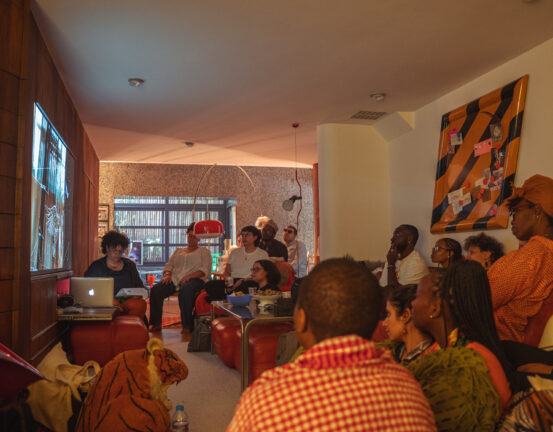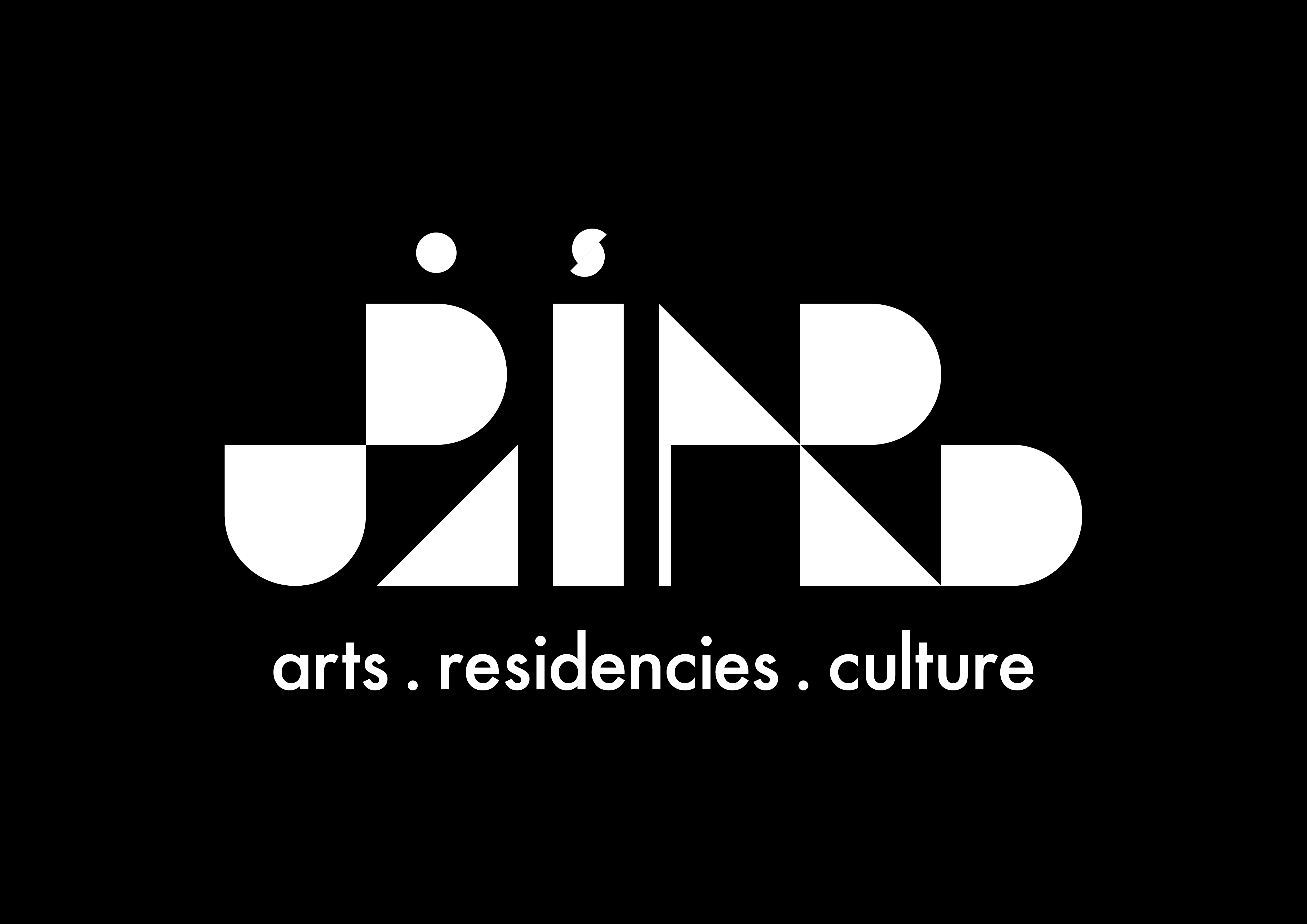Àsìkò Art School is a renowned itinerant art program dedicated to supporting and mentoring artists and curators from across the African continent. Through a unique one-month residency format, Àsìkò fosters experiential learning, critical dialogue, and cross-disciplinary collaboration.
This year’s program, held under the theme “Holding Memory”, is taking place in Egypt for the first time, hosted in Cairo at ARD Art Institution. It brings together artists and curators for a month-long journey of research, exchange, and collective growth.
Day 1
Introduction
The first day was focused on introductions of the team, participants, and our partner institution, Ard Art Institute, and Cairo.
The curatorial strand lead, Khanyisile Mbongwa, and the Artistic Strand Lead, Ismail Fayed introduced their practices and overall, the theme for the programme. The readings for this year’s edition were briefly discussed, as the participants engaged in the conversations in relation to the readings.
Day 2
Day 2 started with a session at CiC with Egyptian artist, Maha Maamoun introducing her practice and showing some of her work, including ‘Domestic Tourism II’ which was followed by a discussion with her.
Later at ARD, Architect, Samir El Kordy also gave a presentation about his practice and engaged with the cohort in conversation about some of the key questions that confront his practice in a context like Egypt.
Followed by Nigerian-British architect and theorist, Dele Adeyemo also introduced his practice, as he also delved into the subject of cosmology.
The final online session online was facilitated by Renaud Proch on the practical process of budgeting.
Day 3
On the third day of Àsìkó Cairo 2025, the cohort embarked on an excursion to the historic Pyramids of Giza. During the visit, the participants delved into the history of the pyramids while reflecting on critical discussions on the contributions of renowned artist Maha Maamoun, from day 2.
Following this visit, the group proceeded to Zamalek, where they visited TINTERA, a private gallery dedicated to photography. The founders, Heba Farid and Zein Khalifa, welcomed the cohort, providing an insightful introduction to the gallery’s mission and curatorial vision. After the introduction, the participants were given an exclusive tour of the space, as they learnt about the contemporary photographic practices in the region.
Day 4
The day began with a session at ARD Art Institution, where participants got to hear more about the practice of Igo Diarra from Gallery Medina, Bamako. Followed by a group time of individual sharing and presentation of practice, reflections. There was also space made to critique and consider methods of effective communication when sharing practice with different audiences.
Day 5
The day’s session began with a visit to Medrar, one of Egypt’s leading contemporary art institutions, which specializes in multimedia and expansive digital technologies. The Medrar team delivered a presentation about the institution’s work, with a particular focus on the Cairo Video Festival. This was followed by a screening of selected submissions from past editions of the festival.
After the visit to Medrar, the group returned to ARD Art Institution, where Ismail Fayed and Khanyisile Mbongwa conducted separate artistic and curatorial sessions with the participants.
Family Brunch 01
The day began with the cohort enjoying a family brunch.
This was followed by the participants gathering at ARD Art Institution where artist, Yasmine El Meleegy shared her practice with the group.
Participants later engaged in one on one sessions with this week’s facilitator Igo Diarra.
Day 6
Day 6 began with a visit to Megawra, where the participants were given a tour of the renovated mausoleum of Imam Al-Shafi’ and its visitor center, showing some of the excavations done on the site and introducing the history of the site and al-Shafi’ life in Egypt and in the city. This was followed by a short tour of the neighbouring cemetery and its main sites. The group then went to the newly opened al-Khalifa park, a community led project that was developed as a green space to the community using run off ground water from surrounding heritage sites. The tour also included other greening projects of monuments and heritage sites around al-Khalifa neighborhood. In addition to greening projects the participants also got to see the community center of al-Khalifa (a historical building that was repurposed as a community center) and a workshop that teaches community residents different traditional crafts (patchwork/appliqué techniques and carpentry for example). The tour ended at the office Megawra, a historical residential building that houses Megawra’s office and library. The Megawra team introduced the different programs Megawra works on, explaining the history of the space, its mission, its work in a local but also a more broader sense.
The Megawra team had conversations with the participants on the different projects Megawra supports and different methods and approaches to conservation and preservation practices as well as knowledge production and exchange, while engendering discourse around those practices
Day 7
The morning opened with a conversation with anthropologist Farah Hallaba of Bel3araby, unpacking how language, culture, and storytelling shape identity and community. This was followed by and introduction to Papa Omotayo’s artistic and architectural practice.
After lunch, participants welcomed Mr. Stephen T. Kauma, Director & Global Head of HR at Afreximbank. He spoke on the vital role of arts and culture in advancing Pan-African development and reaffirmed Afreximbank’s commitment to nurturing creative ecosystems.
The afternoon continued with an inspiring conversation with Aleya Hamza and Farida Youssef on curatorial practice, cultural preservation, and artistic responsibility.
The day concluded with Ama and Oyinda speaking about their practice and introducing the group to the concept of institution building as curatorial practice—framing it as an intentional act of care, resistance, and visioning for the future.
Day 8
The day kicked off with a studio visit at SEBA with Eman Hussein, exploring the world of printmaking and her creative processes. The participants explored different print techniques using various materials.
In the afternoon, the group visited Gypsum Gallery, immersing themselves and engaged in discussions around the exhibitions and local contemporary art scene.
Day 9
The day began at AUC Tahrir where the participants learnt about the history of the institution and the campus site. They also took the opportunity to visit the final year arts programme exhibition which featured work from Amira of ARD Art institue.
The group was later joined by artist Amado Alfadni who unpacked themes of identity, resistance, and representation within his work.
After lunch the group were hosted by Rana ElNemr, who’s site specific presentation was an intimate look at her practice.
The offering which took place at her home offered a glimpse into the often multifaceted layering of life and practice.
